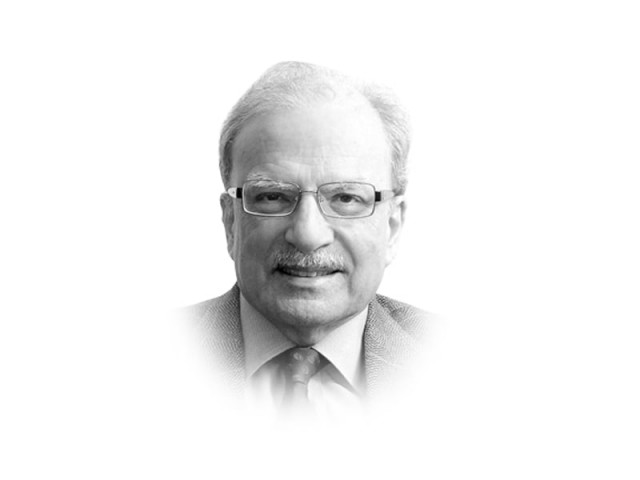Crisis in policymaking
A comprehensive approach that dealt with the short-term is the need of this precarious hour.

Crisis in policymaking
There are many things wrong with official thinking about the state of the Pakistani economy. Some useful material was produced at the Planning Commission. What the Planning Commission called the Framework for Economic Growth, or FEG, has some innovative material. It is right to focus on what it labels the “soft side” of the development equation. The Commission has claimed that for Pakistan to increase the rate of economic growth, it needs to invest in the softer aspects of development and not continue to commit large sums of public money on brick and mortar development schemes that have, in the past, dominated the Public Sector Development Plan.
The “soft side” advocated by the Planning Commission includes institution building, human resource development, increasing the capacity of the private sector to innovate, reducing the regulatory burden carried by private enterprise and changing and modernising urban regulation so that cities become the most dynamic part of the economy. The Commission is also concerned about the declining efficiency and effectiveness of the various civil services. It has called for a fundamental restructuring and reform of the civil administration. All these are worthwhile goals and they needed to be included in an approach aimed at the long term. However, they don’t constitute a strategy that could pull Pakistan out of the deep economic hole it has dug for itself.
The FEG is an approach that will deliver rewards over the long term. It will do very little to solve Pakistan’s current economic problems. Following are some of the many problems crying out for policymaking attention, listed in no particular order: Pakistan’s longest lasting recession with no end in sight; continuing violence, some of it directed at the state; increasing isolation from the world; continued dependence on external capital flows for financing low levels of public-sector investments; the loss of confidence on the part of the investment community, both inside and outside the country, in Pakistan’s economic future; low rates of domestic savings and low tax-to-GDP ratio; very little public-sector investment in improving the quality of the large human resource; declining share in international trade; poor relations between the federal government and provincial administrations; and increasing incidence of public sector corruption.
Pakistan is now regarded as a fragile state by development institutions such as the World Bank. In one of its recent World Development Reports, the Bank also picked up some of the soft factors in the growth function. These, it suggested, are essential ingredients of long-term sustainable development. But it emphasised — correctly I believe — that it will take a generation or two, before fragile economies such as Pakistan can begin to use these factors effectively in the development equation. In the meantime, they need to pull their economies out of the low growth traps into which they have fallen. To get to the long term, they need to focus on the short term.
What should be the development agenda for the policymakers at this delicate moment in the country’s economic history? There are at least five areas that need the policymakers’ urgent attention: revival of growth; increasing domestic resource mobilisation; reconnecting the country with the world; reducing income disparities; and investing in the development of the large human resource. Each of these areas requires a series of government actions. There are no indications that any of these are planned. What needs to be done in one area will impact on the remaining four. In other words, a comprehensive approach that dealt with the short-term is the need of this precarious hour. Long-term thinking could wait while the short term was being fixed.
Published in The Express Tribune, August 13th, 2012.















COMMENTS
Comments are moderated and generally will be posted if they are on-topic and not abusive.
For more information, please see our Comments FAQ